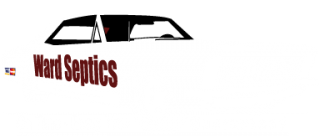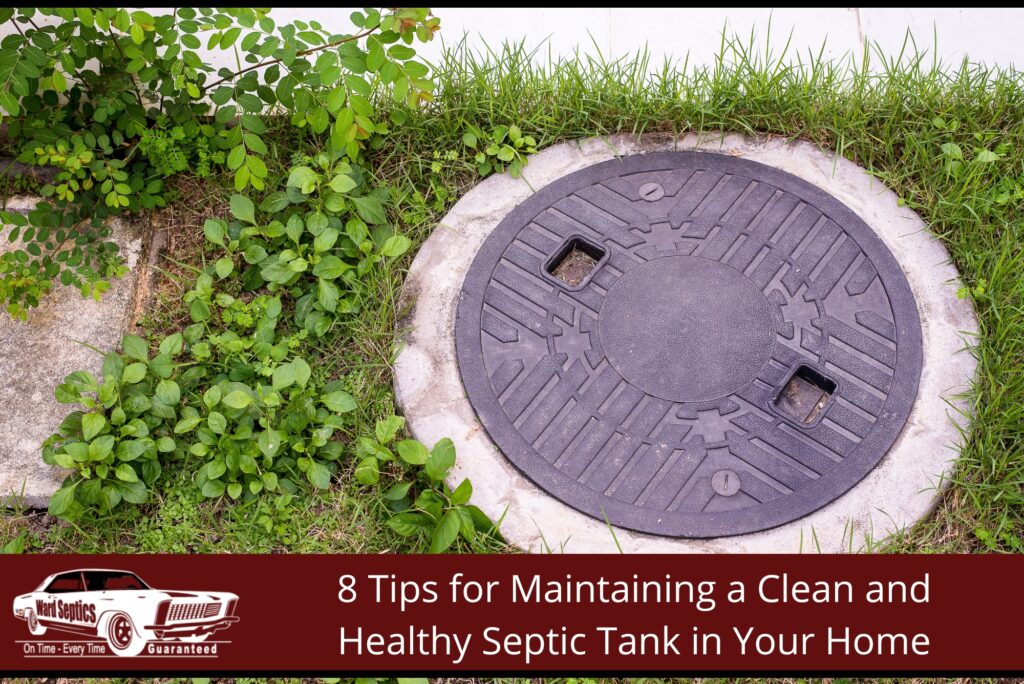Essential tips to keep a healthy residential septic tank.
A septic tank is like a body’s digestive system wherein food particles break down and undergo a chemical process. But instead of food and nutrients entering the digestive tract, household wastes enter an inlet pipe straight into a septic tank underneath the ground.
A healthy digestive system stems from healthy foods and regular cleansing (such as detoxification). Likewise, a clean and healthy septic tank in your home stems from proper maintenance and upkeep. It means not throwing away trash into the septic tank and having a regular cleaning schedule with your septic tank cleaning specialist.

How does a septic tank system work?
Do you know where human waste goes after you flush the toilet bowl? Or where soapy water flows after it goes down a sinkhole? You will appreciate proper cleaning and maintenance of a septic tank if you understand how a septic tank system works, no matter how gross it sounds.
The wastewater exits through a pipe and goes straight into the septic tank. A septic tank is fibreglass or concrete. The heavy solid waste sink to the bottom and forms a sludge layer after 24 to 48 hours. Lighter components like grease, fat, and oil float to the top of the wastewater and form a scum layer. Microorganisms (especially bacteria present in human faeces) break down solid waste. The scum and sludge are held by the tank’s fittings to prevent it from pouring out.
What happens to the liquid part, otherwise known as effluent? The liquid part, partially treated by bacteria, flows out of the tank into the drainfield. Liquid drains into the soil layer, and bacteria filter and digest contaminants. Thus, wastewater becomes fully treated upon reaching groundwater. You have understood the importance of proper septic tank maintenance by now. It entails responsibility for taking care of the environment.

How to care for your septic tank
Here are eight tips for maintaining a clean and healthy septic tank.
Pump your septic tank regularly.
You may think that hiring a septic tank specialist to pump your septic tank regularly would cost a lot of money. It would cost a fortune if your septic tank breaks down because of scum and sludge build-up.
Fortunately, hiring a skilled and competent septic tank specialist to pump out solid waste every three years is just a fraction of the cost of installing a new septic tank, which costs thousands of dollars. Your septic service provider will inspect your septic tank system for leaks and damages. Keep a record of routine cleaning and check-ups. It may come in handy when problems occur or when you sell your house.
Do not overload the septic tank system with tons of wastewater.
Most households set up a laundry day to save time, water, and resources. There is an ounce of common sense to this practice. The problem is that your septic system may bog down and eventually flood the drainfield if it gets overloaded. A septic tank needs time to treat wastewater, just like our body’s digestive system needs time to digest food. It’s prudent to spread your full load of laundry three or four times a week. The same logic applies to housecleaning, which flushed tons of wastewater down the drain.
Do not dump trash into the toilet and kitchen sink.
A toilet bowl is not a trash can. So, refrain from throwing tissues, sanitary napkins, paper towels, diapers, hair, dental floss, or anything that would clog a septic tank. Toilet paper is the only material designed to break down in the septic tank.
Similarly, be mindful of what you throw into the kitchen sink. Do not discard eggshells, coffee grounds, butter, cream, grease, fats, or cooking oil in the kitchen sink. These materials will block sink screens, cause pipes to clog, and deposit thick layers of scum. In addition, homeowners should know that only biodegradable foods break down easily in the septic system.
Clean your septic tank naturally.
Avoid using harsh chemicals like bleach, toilet bowl cleaner, drain cleaner, and disinfectants to clean your septic tank. These substances kill good bacteria in the septic system. Lemon and vinegar are powerful natural cleaning agents. You may use other natural or plant-based and biodegradable cleaning products that do not contain chlorine, ammonia, dyes, or fragrance. They are eco-friendly too!
Also, choose hypoallergenic and biodegradable products when buying laundry detergents and soaps. No harmful chemicals mean no chemical poisoning and a longer lifespan for your septic tank system.
Recognise the signs.
It is easy to spot trouble in the septic system. Call your septic provider immediately when you see these signs:
- Wastewater backing up
- Unpleasant odour
- Slow-draining drains and toilets
- Green grass in the drain field
Increase good bacteria in the septic tank
As mentioned in tip #4, harsh chemicals kill bacteria in the septic tank and disrupt the wastewater treatment process. To add good bacteria, use organic additives that break down unnatural substances like detergents and soaps.
Frequent inspection and maintenance
A reputable septic tank specialist will thoroughly inspect your septic system for leaks and damages. He will conduct an audit at the appointed time and tell you the exact condition of the septic system. He will nip any potential problem in the bud in the nick of time.
Maintain your drainfield.
A drain field is a vital component of the septic system. It removes contaminants from the liquid that emerges from the septic tank. Maintain the good working condition of your drainfield:
- Do not park or drive on your drain field. It will disrupt the complete water treatment process.
- Ask your septic tank specialist about distancing plants and trees from the drain field. You don’t want roots to interfere with your septic system.
- Keep other drainage systems away from the drain field area. Excess water either slows down or stops the wastewater treatment process.

Book an appointment for septic tank cleaning and maintenance now!
Are you anxious about water back-ups in your house? Do you smell a foul odour in the kitchen or toilet? Then it is time to call a reputable septic service provider if your home is on the Central Coast and Hunter Valley! Ward Septics will give you value for your money when you get your septic tank cleaned or pumped. Call Paul Burgess, a septic tank cleaning specialist with 45 years of experience in the plumbing industry. He will make sure that your septic tank system works safely and effectively. Call us on 0438 315 514 or like us on Facebook.








